24 from '24
Reflections, re/formulations, curiosities and contradictions from another spin around the sun!

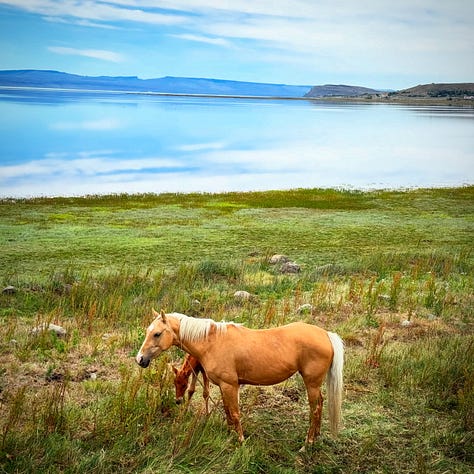
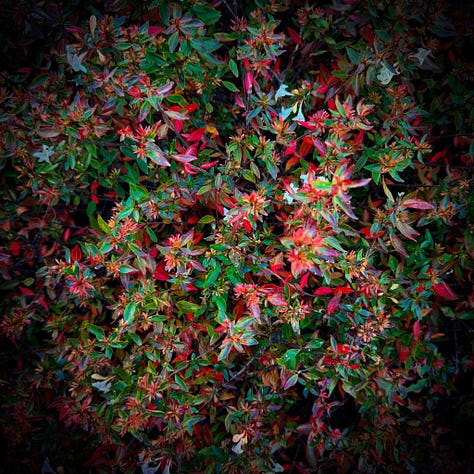
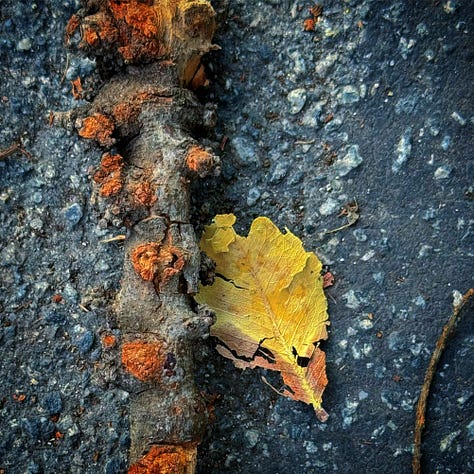
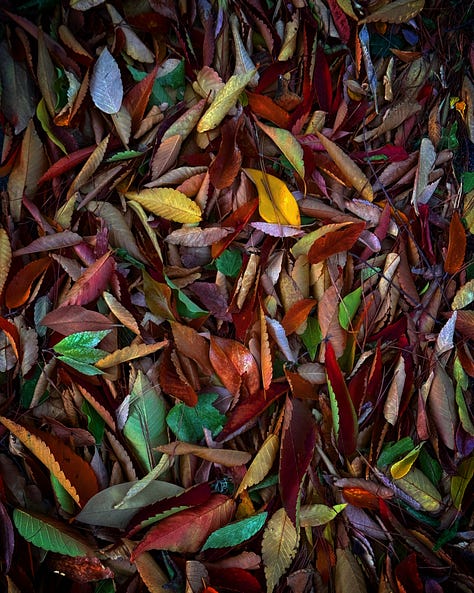
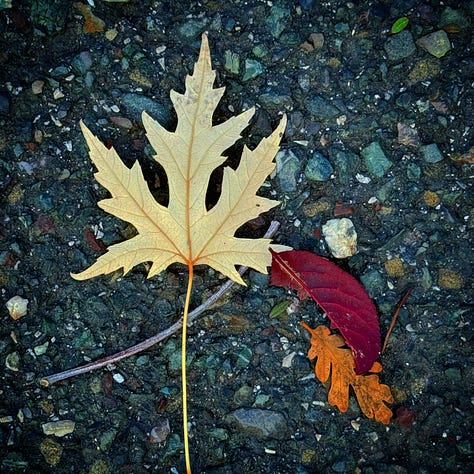
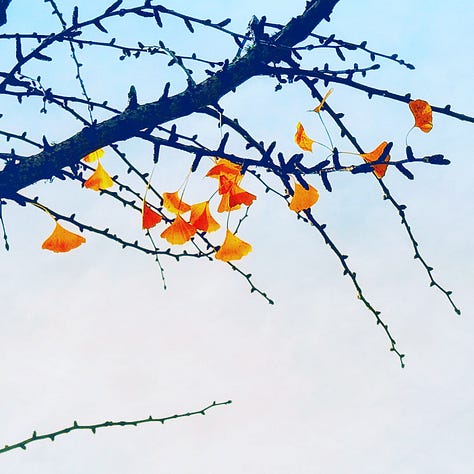

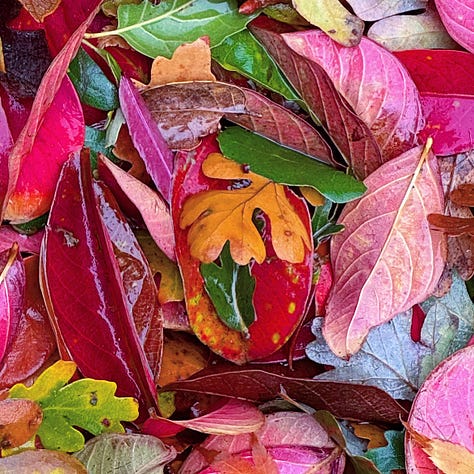
24 Reflections, re/formulations, curiosities and contradictions from ‘24
I remember being a teenager and calculating how old I would be when the 21st century arrived. That came and went—and a quarter of a century is nearly done since! That kinda’ noticing makes me wonder if I’m doing enough. But I’m not one for new year resolutions. Instead I like to gather up my thoughts at such cusps—just to sort through the truths and lies I’m telling myself.
“I write entirely to find out what I'm thinking, what I'm looking at, what I see and what it means. What I want and what I fear.” —Joan DidionMy 2023 reflections from last year are here:
As for 2024, I offer you 24 from 2024. All of these are personal reflections, so they come with a “Buyer Beware” —
Authentic gratitude is instrumental to happiness. Unfortunately though, “gratitude” as thinly disguised virtue signaling or in humble brags is unlikely to do much for happiness. Real gratitude often presents in tiny doses of self-reflection and redirection. For example when we see someone who’s not made “sufficient” time for us, instead of feeling annoyed, how about we acknowledge the time and energy they’re expending to see us now?
“Many people lose the small joys in the hope for the big happiness.” ― Pearl S. BuckGratitude is also the antidote for envy. It cures us of mindless mimesis. Comparison kills joy.
Teaching kids gratitude is to inoculate them with an anti-envy mechanism. We should set an example for how to be giving and grateful. Caution to NOT make them feel guilty for the “privilege” we gave them.
Some degree of loneliness is endemic to the human condition. It’s based on our existential reality that we’ll die alone. Still, some of us are content with a good book, others need a soulmate and a few meaningful relationships, and still others find solace in large groups, some by immersing in frenzied activity, some even by cultivating “fans” instead of friends. Each to his own, I say. But the “cure” for this condition seems to lie in compassionate self-acceptance. Denying ourselves compassion is a project in self-alienation.
A corollary of compassion is seeking forgiveness. Saying, “I’m sorry” unabashedly, unequivocally, unqualified by excuses has incredible power to heal—us! Our ego gets in the way, telling us we’ll be snubbed, rejected, even mocked. Even if that happens, our strength in asking for forgiveness can redeem us. In our own eyes—the eyes that matter.
But…compassion can be vastly misdiagnosed. Seeing someone as a perpetual victim—especially oneself—is NOT compassion. A victim lens implies a lack of respect for the person’s agency. It’s a patronizing, self-aggrandizing act of pity. Telltale signs are as follows: the “compassion” exists selectively for certain groups but is entirely missing for dehumanized others; and the “compassionate” helper needs the subject to continue their helplessness. Such compassion is about power, a horrible corruption.
Being bored is on us. Curiosity is the cure for boredom. There’s so much to discover, to read, to learn, to experience, to daydream about. And so little time. If none of those work, take a yoga nidra.
I once posited life is suffering. But that formulation is incomplete. Instead I propose (paraphrasing Buddhists): pain is inevitable, suffering is optional. Meaning that in every life some pain is a given, but suffering is an output of our minds, much of it authored by us. That doesn’t mean we intentionally choose suffering or that ridding ourselves of suffering is easy. But we make the pain given to us, much worse with our anxiety, reactions, ruminations. It means that even in dire circumstances we can exercise choice. Now to practice!
“Some things torment us more than they ought; some torment us before they ought; and some torment us when they ought not to torment us at all. We are in the habit of exaggerating, or imagining, or anticipating, sorrow.” —SenecaLove is the substrate of our existence and its analgesic. The ability and opportunity to express love can alleviate our pain. That “love is not enough” is also true, in specific contexts. Still we’re designed to move mountains for it. Because without love, there’s no beginning, no movement, no sign of life.
There’s much chatter about the mind-body connection. Still most of us—and much of the medical establishment is trained to—treat the body in isolation. The fact that many of our ailments come from our minds doesn’t mean we manufactured them or that we’re hypochondriacs or that we can “think” ourselves out of such suffering. Just that we need integrated approaches. One of the best books I read in 2024, The Body Keeps the Score, helped me understand this, and how the “medicalization” of our suffering hurts us.
Atheism has lost its appeal—for me. Those who’ve known me longer will find it shocking that a deep spiritual longing to illuminate the mysteries of existence, of the soul and toward some form of transcendence has arisen within me. It feels similar to the unexpected internal mommy-clock that started to beat loudly in my thirties. Apparently, I’m not alone. The prevalent reductive materialist view of reality doesn’t seem to be working too well for many others. Personally, it’s interesting that this has arrived in my late 50’s, since Hinduism prescribes such contemplation, right about now. I’m hardly an apologist for religion, having spent most of my younger years outlining the multifarious ways religion creates harm especially with its “pre-rational” approaches. Even today, the most regressive death cults of our times continue to spread terror in the name of religion. And Hinduism, my mostly tolerant home religion, still suffers from mindless dogma, socially regressive practices and abject superstition. Surely work remains to excise hateful and regressive aspects from religion. Yet, ancient religions have always evolved through reformation, evolution, even the birthing of sects. But in throwing out the foundational bath water, we’ve ignored religion’s role in providing sustained moral grounding, and in slaking our need for something bigger, beyond ourselves.
"God is dead. God remains dead. And we have killed him. How shall we comfort ourselves, the murderers of all murderers? What was holiest and mightiest of all that the world has yet owned has bled to death under our knives: who will wipe this blood off us? What water is there for us to clean ourselves? What festivals of atonement, what sacred games shall we have to invent? Is not the greatness of this deed too great for us? Must we ourselves not become gods simply to appear worthy of it?"—Friedrich NietzscheThe 100 million+ murders of communism are only Exhibit A. All around us empty rationalist souls try to replace traditional religion with new cults of moral relativism, ends-justify-means fueled pieties and arbitrary gods who offer zero redemption. The result: a decline in family bonds, social cohesion, romantic love, mental health, our children’s abject moral and “emotional incontinence”1 and a rise in violence-toting devotees of rage and self-pity. For me it’s time to reclaim the baby I threw out. Don’t know where my quest will take me but I’m filled with inexplicable hope.
“There is a God-shaped vacuum in the heart of each man which cannot be satisfied by any created thing...” ―Blaise PascalFeelings offer important signals for navigating life, even pointing us to essential, life-saving intuitions. Which is why we should recognize and acknowledge them. But feelings are not good arbiters of reality. Too many have convinced themselves that their feelings are above all other considerations. Children are being taught to only pay attention to how something/someone makes them “feel”. It’s a terrible standard to live by. Others can’t be responsible for how we feel, nor do they owe us good feelings. That doesn’t mean we abandon boundaries in our interactions or that we tolerate toxic people; but that we dig a little deeper and realize that bad feelings can originate from many places such as: faulty assumptions, misplaced attribution, biases we carry, envy, oversensitivity, psychological triggers, lack of maturity, even narcissism, to name a few. It behooves us to examine with some level of objectivity what’s really going on. The irony is that people who learn to manage this balance are usually also able to navigate healthy boundaries in their interactions.
No relationship, no friend, no loved one can meet all our needs. We have to decide which trade-offs are acceptable. And if none are, then move on. Constant criticism of relationships that prove inadequate indicate we expect them to be bigger, better, than is possible. Fact is, we can’t be everything for another either. Expecting otherwise is foolish and entirely our problem.
Extremes are useful, in theory. Rarely useful in practice—instead often destructive, even inimical to life. As Buddha prescribed, it’s the golden mean we ought to listen for. Which is far from easy—to even tease out, let alone adhere to. Balance is harmony, not moral relativism. If anything it demands being moral in a broader, wiser sense. The golden mean is not found in the person who never takes a stance, nor in one who’ll happily share equally with the murderer and his victim. It’s not the monk who’s renunciated everything, nor the endlessly acquisitive person, perpetually trading value for price. Definitely not in the person who sacrifices justice for a theoretical egalitarianism or preaches violence to end violence. It’s not the simple calculus of an average, a mean or even a median; none of those would get you there. We still need a principled framework. A path of balance is to be derived from the complexity of the context, an idea that seemingly opposing notions can simultaneously be true and recognizing that fixing one wrong can cause other destruction. If at some point, we at least realize that both magic and morality are to be found at some messy midpoint—and in a dance that approaches that mythic middle—then we’ve got it half made.
“Whoever fights monsters should see to it that in the process he does not become a monster. And if you gaze long enough into an abyss, the abyss will gaze back into you.”― Friedrich NietzscheThe Hippocratic “First, do no harm” principle works generally in life. When attempting to alleviate suffering, pay attention to unintended consequences. Sometimes the “cures” are worse than the ailment. See my reflection on religion and on balance above.
There are rarely any silver bullets. Or singular causes for almost anything in life. Which is why finding answers requires multimodal investigation and approaches. Single cause over-attribution is bad thinking. It’s also an affliction of the fanatic and the ideologue.
All unsolicited advice is a form of criticism. This pearl is perhaps most powerfully applied to our kids. We have to be guides and boundary-setters for our children, especially when they’re young. But we needn’t be lifelong advice machines. A tough one to master.
Always join in the SINGING and DANCING. I’m untrained and claim no natural talent but I’ve learned to always join in. It’s one of the of the easiest paths to joy.
One of my greatest gifts is that I can love a book so much that my heart and head feel like they’ll burst. Like this one. And this one. Even better is infecting my beloved set with my gushing about them. Knowing that there’ll always always always be a book I MUST read makes me deeply happy.
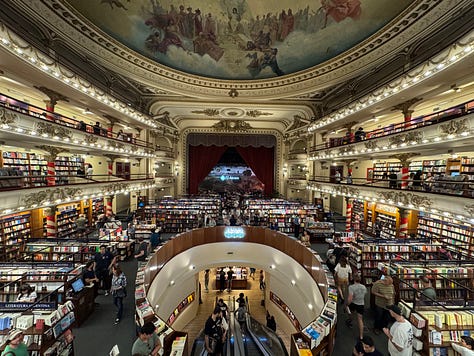
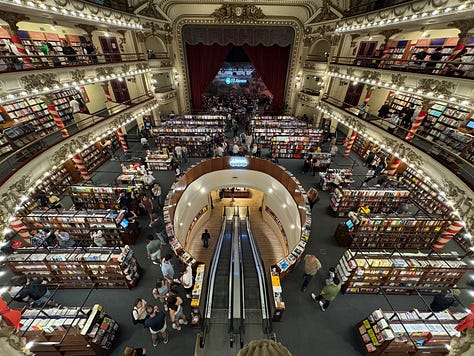
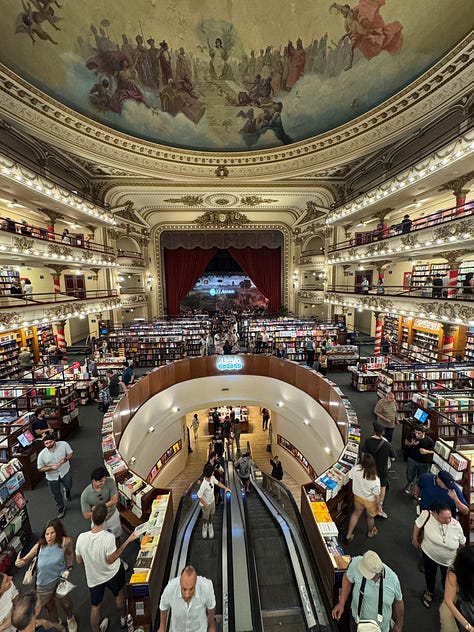
"Paraíso" Largest bookstore! (Ricoleta, Buenos Aires; Dec 2024) PC: Reena Kapoor The human-dog connection has profound meaning and implications. Loving them works at so many levels. Losing them teaches us at so many levels.
I’m overwhelmed by all the stories I want to tell. The stories wait patiently in the wings. Procrastination comes in handy. Must be fought. Tomorrow?
How I love witnessing the first butterfly of spring in my garden. Last year it rained again, and again, as I waited, after I thought the rains were done. The flowers laughed at my incredulity. I wait for spring again!
Friends who’ve held me after my parents passed—even now after these years—have my lifelong loyalty. And I’m deeply honored by the trust, the sharing, no matter how small or big of friends and family who call me—even incredibly, people who I think don’t know me too well—to share a confidence, or just to have me listen to their woes, their deepest fears.
AND, this one especially for any young(er) readers who come upon my ponderings. The “anointed” in modern western culture will tell you there’s no need to fall in love. Love is made up, they’ll say. They’ll tell you no need to get married, have a family, or work hard in a committed, monogamous, romantic relationship. “All patriarchal constructs,” they’ll claim. Instead, they’ll tell you to run at the first sound of trouble! They’ll also tell you never to have kids—a hundred reasons why. Don’t listen to such nihilist canards. THEY’RE WRONG. Of course, abuse is never acceptable in any relationship. But that is not the norm. A loving marriage and family are entirely possible—and foundational for happiness. That’s how the world goes around!
Do tell me what you think! And share YOUR reflections.
H/T








I love the honesty in your words! Thank you! I am printing the post and keeping it in my journal to use it as a reminder through the year!
Great list, Reena!